
CARACAS, Venezuela, Dec. 3 — The surprising defeat of a referendum over the weekend to accelerate President Hugo Chávez’s socialist-inspired revolution has given new energy to his long-suffering opposition.
But just how long that momentum lasts will depend on whether his opponents can keep within their ranks the Venezuelans who defected from Mr. Chávez to vote no on the proposals.
For nine years, a combination of populist politics and rising oil prices have propelled Mr. Chávez’s socialist program for Venezuela with an almost inexorable momentum. On Sunday, his country put on the brakes.
Those results have at once given the opposition a sudden boost and demonstrated the resilience of Venezuela’s institutions. They also showed that many of Mr. Chávez’s once-stalwart backers have grown frustrated with the rising prices and food shortages that have become symptomatic of his revolution, despite his promises to the poor.
Interviews in the barrios where Mr. Chávez’s support has run strong indicated that many of those no votes were as much an expression of frustration with government mismanagement as a warning to Mr. Chávez that he had finally overreached in proposing constitutional changes that would have ended term limits for the president and greatly centralized his power.
The rejection of his proposals amounted to a sharp rebuke from Venezuelans who let Mr. Chávez know that they were hesitant to follow him much farther up the path to a socialist future if their present needs were not being met.
At play now is a large portion of the electorate. Mr. Chávez won re-election last year with about 63 percent of the vote, compared with the 49 percent that supported his proposed constitutional amendments. The opposition, which never won more than 41 percent in four national elections during Mr. Chávez’s presidency, got 51 percent over the weekend, illustrating its ability to win over voters who were loyal to Mr. Chávez in previous races.
The real test now for the opposition will be to fashion viable alternatives to keep those defectors. That will not be easy. Mr. Chávez and his supporters still control the National Assembly, the Supreme Court, almost every state government and the entire federal bureaucracy. The opposition, meanwhile, is recovering from years of tactical errors and marginalization from the country’s political life.
But in an unforeseen challenge to Mr. Chávez, the new leaders of this opposition have emerged from the disaffected within his own movement. They are hewing to leftist ideals while expressing increasing unhappiness with state control of the economy and the intensifying cult of celebrity around Mr. Chávez.
“The president wanted to obligate Venezuelans to accept this project,” said Gen. Raúl Isaías Baduel, the retired top commander of Venezuela’s army who broke with Mr. Chávez last month.
General Baduel, speaking at a news conference here on Monday, said “the people did not propose one comma or period to the text” of the defeated proposals, which would have formally created a socialist state. As a next step, General Baduel proposed that the country convene a new constitutional assembly to rewrite Venezuela’s laws.
Aside from General Baduel, other leaders whose stars are rising are Ismael García, a deputy in the National Assembly, and Ramón Martínez, governor of Sucre State in eastern Venezuela. Both men were supporters of Mr. Chávez but have vociferously distanced themselves from him in recent months.
They were joined by a student movement that led street protests here and in other large Venezuelan cities before the vote. In contrast with some traditional opposition parties, few of the student leaders describe themselves as conservative critics of the president, preferring to tout their own progressive ideals.
Some of the students were as surprised as many other people here by the outcome of the referendum. “I didn’t think we were going to win,” said Diana Cocho, 24, one of hundreds of people who flocked to Plaza Altamira in eastern Caracas at 2 a.m. Monday after the results were announced.
People played drums, jumped up and down, exchanged hugs and chanted antigovernment slogans. Most were students. Many were sipping from bottles of rum.
“I thought Chávez looked scared, like he expected something different,” said Ms. Cocho, referring to the president’s television comments accepting the outcome of the vote.
Jens Erik Gould contributed reporting.
http://www.nytimes.com/2007/12/04/world/americas/04venezuela.html?_r=1&hp&oref=slogin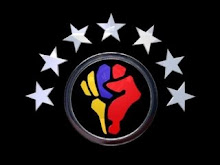

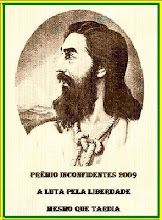
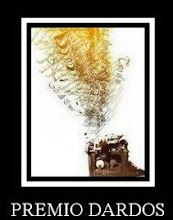





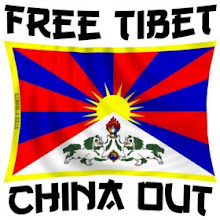










.jpg)




















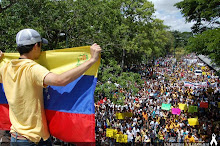





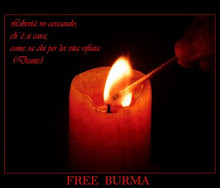
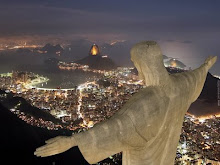




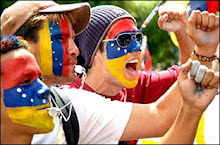










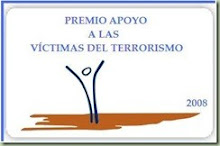


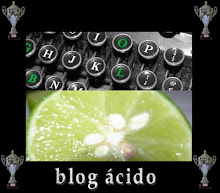
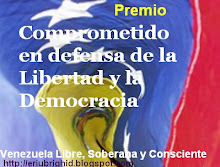


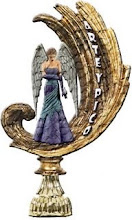


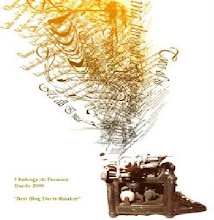



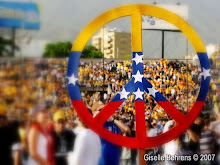











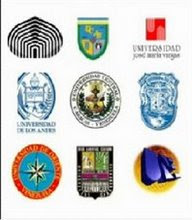
No hay comentarios:
Publicar un comentario